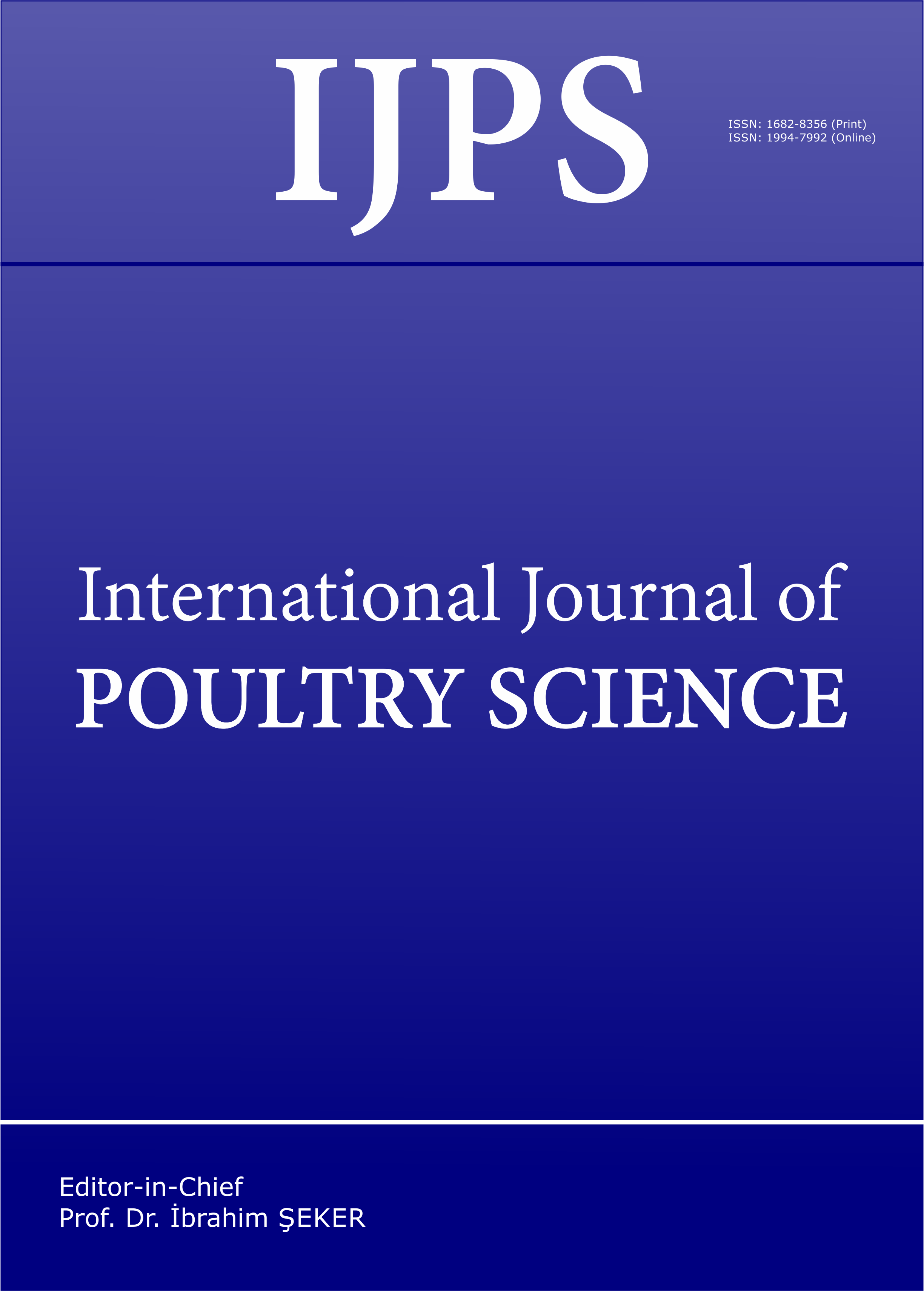The Effects of Dietary Protein and Lysine Levels on Broiler Performance, Carcass Characteristics and N Excretion
DOI:
https://doi.org/10.3923/ijps.2004.148.152Keywords:
Breast meat, broiler, carcass, lysine, proteinAbstract
In a 2x3 factorial arrangement, the effects of dietary protein and lysine levels on performance and carcass characteristics of Ross male broiler chickens from 1 to 3 weeks and 4 to 6 weeks of age were tested. Dietary treatments consisted of three levels of L-lysine.HCl in starter and grower period (0.0, 1.5 and 3.0 g/kg) and two levels of protein (208.4, 178.4 in starter and 181.2, 161.2 g/kg in grower period) with 12.12 MJ AME/kg diet. Reducing dietary protein decreased weight gain in starter, grower and total period up to 6.0, 4.6 and 5.6% respectively (P<0.05). It also decreased feed consumption in starter period (P<0.05). Decreasing dietary protein had no significant effect on gain to feed ratio and breast meat yield, but increased abdominal fat percentage significantly (P<0.05). Increasing dietary lysine increased feed consumption in starter and weight gain, feed to gain ratio in grower and total period of the experiment (P<0.05). It also increased breast meat yield and percentage (P<0.05). N excretion reduced significantly by decreasing dietary protein (P<0.05). Dietary treatments had no significant effect on mortality.
Downloads
Published
Issue
Section
License
Copyright (c) 2004 Asian Network for Scientific Information

This work is licensed under a Creative Commons Attribution 4.0 International License.
This is an open access article distributed under the terms of the Creative Commons Attribution License, which permits unrestricted use, distribution and reproduction in any medium, provided the original author and source are credited.

